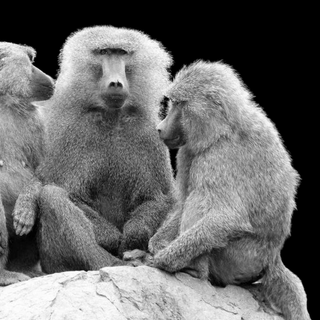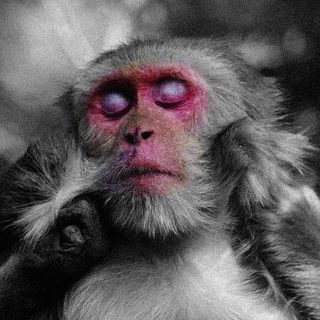British naturalist Charles Darwin’s theory of evolution and natural selection often gets broken down into one simple phrase: ‘Survival of the fittest,’ which we’ve come to understand as the survival of the strongest, meanest, most aggressive, and selfish. It’s a concept that thrives even today, as invoked in the Covid19 pandemic to shrug our shoulders at the plight of the elderly or to bolster anti-science politicians talking about their strength as a tool to fight off the virus. But evolutionary biologists say we’ve grossly misunderstood the concept of ‘fittest,’ and it’s hurting our lives and livelihoods.
“Fitness is just your ability to reproduce. So this idea that you had to be the biggest and the strongest and the meanest in order to succeed, it’s not what Darwin meant at all,” co-author of Survival of the Friendliest, Vanessa Woods, tells the BBC. Woods says constant competition and desire to come out on top, essentially wanting to be an alpha male, doesn’t automatically mean success. “It’s actually very costly to be the alpha male. It can be incredibly stressful. You’re always looking over your shoulder.”
Darwin didn’t even coin the term ‘survival of the fittest,’ which was actually thought up by social Darwinist and philosopher Herbert Spencer. Darwin also criticized the ‘survival of the fittest’ argument often, presenting instead a hypothesis for human evolution that centered sympathy. “Communities, which included the greatest number of the most sympathetic members, would flourish the best, and rear the greatest number of offspring,” he wrote. Over the years, evolutionary biologists and psychologists have added cooperation, kindness, friendliness, and niceness to their interpretation of Darwinism, asserting that it’s humans’ ability to live with each other, feel each other’s pain, care for their young and loved ones that make Homo sapiens the species that won out over all the others.
It was definitely not brute strength or bigger brains, evolutionary anthropology expert and co-author of Survival of the Friendliest, Brian Hare, tells the BBC. The Neanderthals, for example, had similarly sized brains as Homo sapiens, they were stronger, had their own culture and technology. Yet, they died out. One theory for Homo sapiens’ evolutionary victory suggests nothing to do with how smart or strong humans were, but how friendly their faces looked — short, narrow, without imposing brow ridges that signaled aggression or brute strength.
Related on The Swaddle:
At Work, Jerks Don’t Get Ahead Any Faster Than Nice People: Study
Competition is also not the natural order of the world, the authors say, invoking their research into bonobos. Bonobos don’t kill each other; bonobo females make lasting friendships and don’t tolerate aggressive males; the friendliest bonobos are always the ones with the most offspring. Friendliness and cooperation are found in most natural occurrences from how single cells cooperate to make larger organisms to how human beings find affection and commonality with out-groups.
Our interpretation of ‘survival of the fittest,’ then, is actually hurting how we order social institutions, including schools and workplaces. We value cut-throat competition as an essential tool, often the only tool, for success. This has led to the instilling of a masculinity contest culture in science and other fields. Devaluing traits such as cooperation and friendliness, in favor of a competition that is often alienating, affects non-males particularly intensely, widening the gender gap in terms of opportunity and independence in society. At the end of the day, it is humans’ ability to work together that got us this far, and it is continuous friendliness and consideration, even to out-groups, that will see us even farther.
“Sympathy is the strongest instinct that humans have,” University of California, Berkeley psychologist, Dacher Keltner, tells Aeon. Let’s use it.




